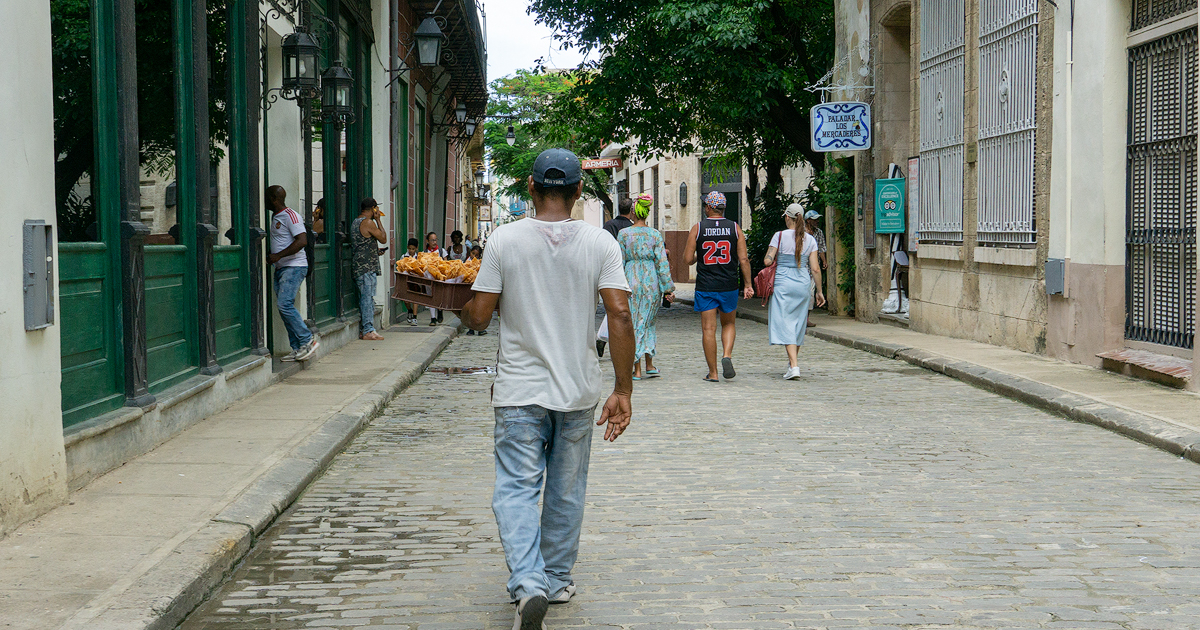Merely glancing at a restaurant menu in Cuba reveals the devaluation of the peso. Take, for instance, La Rosa Negra in Havana: chicken soup at 600 pesos, rice and beans at 200, ropa vieja at 1,915 pesos, an espresso at 150 pesos, a national beer at 340 pesos, and fried pork chunks at 2,145 pesos. These prices relentlessly consume Cuban salaries and remain sky-high.
In fact, Cuba concluded May with an annual inflation increase of 31% compared to the same month last year, according to data shared by Finance Minister Lourdes Rodríguez with a group of SME representatives. She presented this in a positive light, emphasizing that the trend is not higher than last year's. Essentially, she sees prices as "stable within the severity," considering that the cumulative inflation from January to May is 15%. "We are on a trend that is not accelerating beyond 2023 but is also not halting its growth," she warned.
However, what the minister did not mention, to avoid worsening the diagnosis, is that hyperinflation in Cuba is ten times the rate in the United States (3.3% in May and a cumulative 2.4% in 2024). Although this might seem minor, compared to life under Díaz-Canel’s administration, it is significant. For example, the price of olive oil in Spain, one of Europe’s major producers, has risen from just over 3 euros to 8-9 euros per liter in just a year. Spain's inflation is under control, hovering around 3.6% in May (year-on-year).
These olive oil prices in Spain are minimal compared to an island caught in a spiral of increases that, according to economist Alejandro Hayes, largely depends on the exchange rate, which has long eluded the regime’s control. The Bank of Cuba has even blamed external forces like El Toque for the inflation in Cuba. The enemy is always external.
The Role of Exchange Rates in Cuban Inflation
"The entire price formation mechanism in the private sector is influenced by the exchange rate. Given the private sector’s weight in the supply of goods and services, without reducing the exchange rate, inflation cannot be eliminated. Additionally, the recent dollarization of part of the fuel supply, a key link in price formation, means that without reversing the exchange rate, inflation cannot be reversed," Hayes explained to CiberCuba.
According to Cuban economist Emilio Morales, inflation in Cuba has skyrocketed by 1,500% over the past six years. In his opinion, the only thing that could stabilize the Cuban peso is the fall of the government.
Amid this scenario, the Cuban regime plans to cap the prices of the six most consumed products on the island, according to a survey they claim to have conducted. These products include chicken (680 pesos), detergent (630), powdered milk (1,675), spaghetti (835), sausages (1,045), and oil (990 pesos). However, the finance minister admitted that products like chicken or powdered milk are currently scarce.
As of today, in Havana, oil sells for between 1,100 and 1,200 pesos; detergent is priced at 450 (below the intended cap). The same goes for chicken, which, when available, is 450 per package. Powdered milk sells for 2,500, and spaghetti for 350. This price discrepancy indicates that the government itself expects prices to continue rising for some of these basic goods.
Understanding Cuba's Hyperinflation
Below are some frequently asked questions about Cuba's current hyperinflation crisis and its impacts.
What is the current inflation rate in Cuba?
As of May, the annual inflation rate in Cuba is 31%, according to Finance Minister Lourdes Rodríguez.
How does Cuba's inflation compare to the United States?
Cuba's inflation rate is significantly higher, at ten times the rate in the United States, which was 3.3% in May.
What factors are contributing to Cuba's hyperinflation?
Key factors include the exchange rate, the dollarization of fuel supplies, and the government's inability to control the economy effectively.
What measures is the Cuban government taking to control inflation?
The government plans to cap the prices of six essential products, although many of these items are currently scarce.
